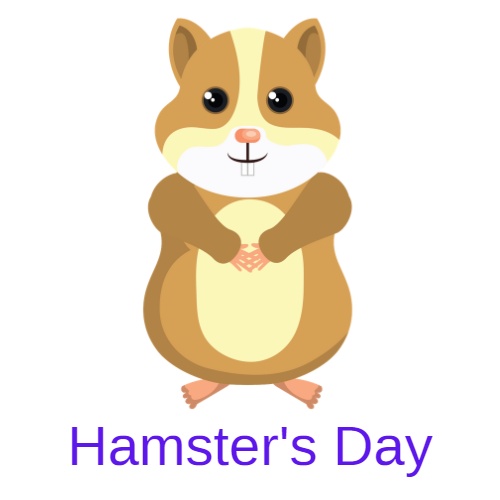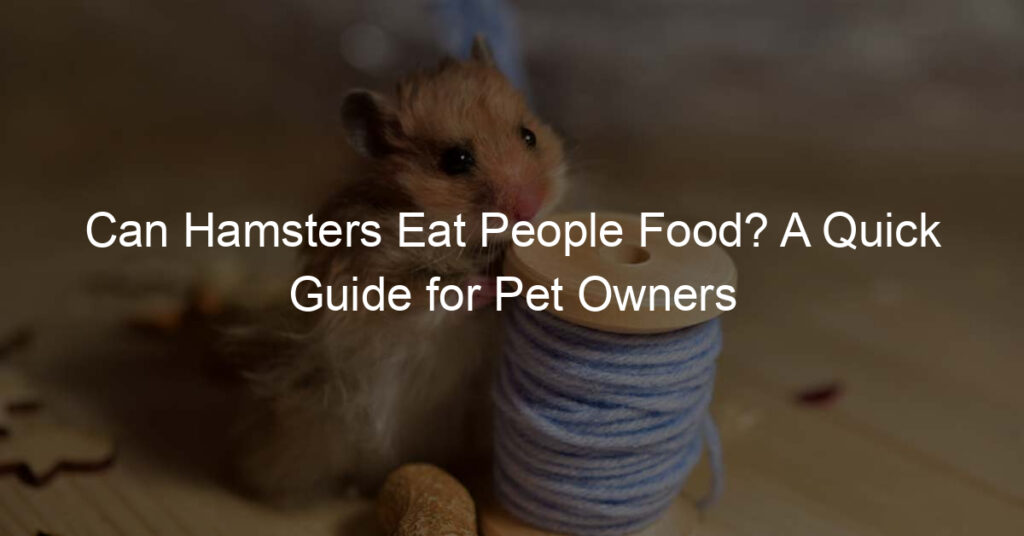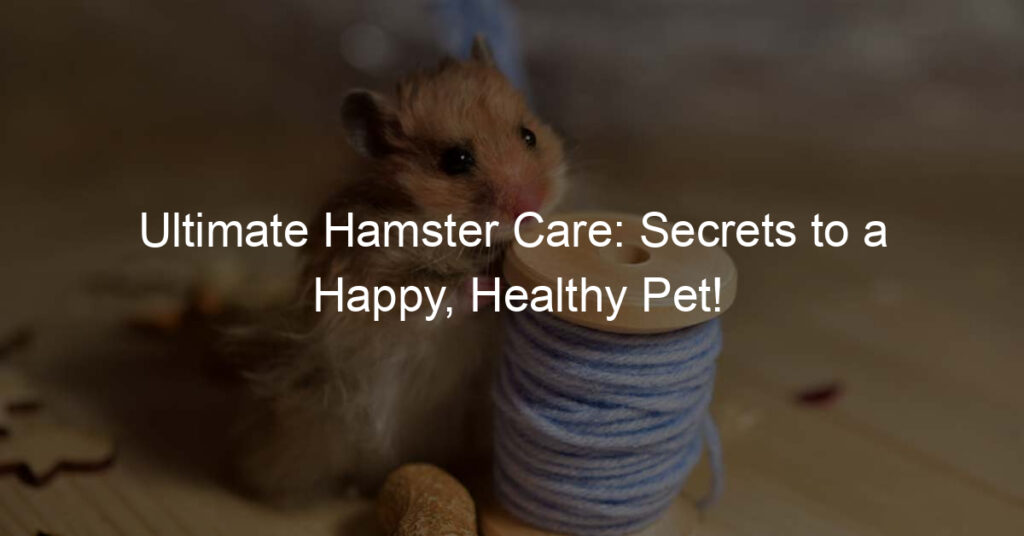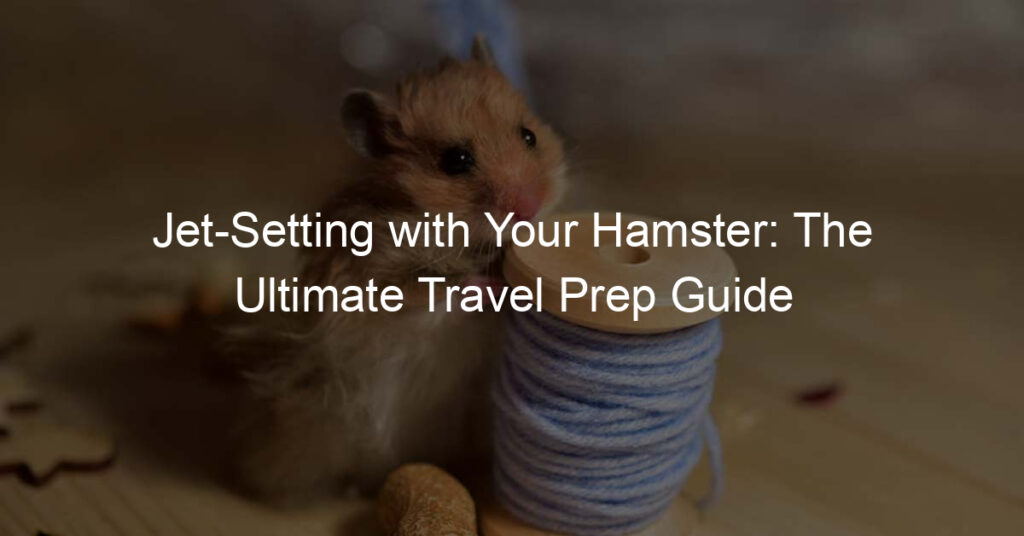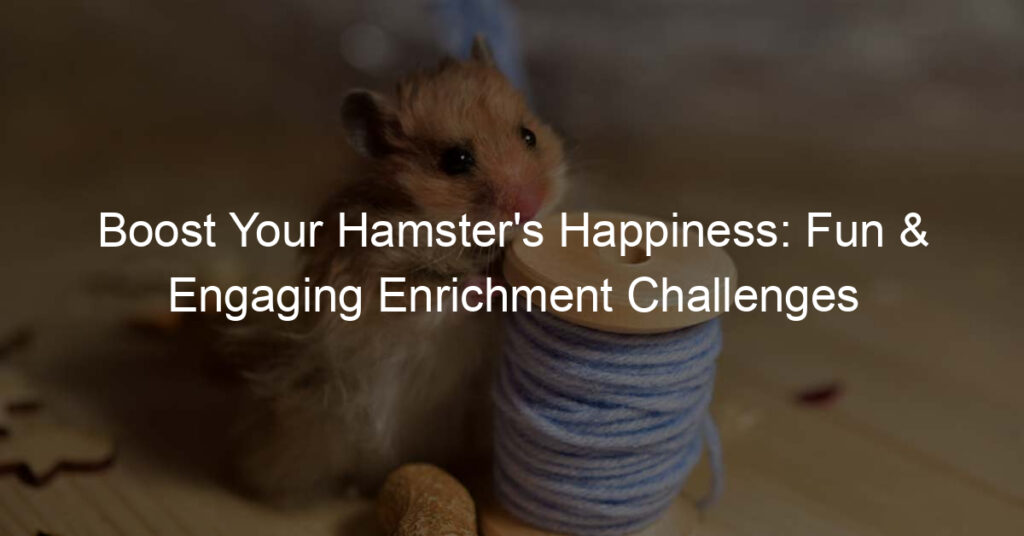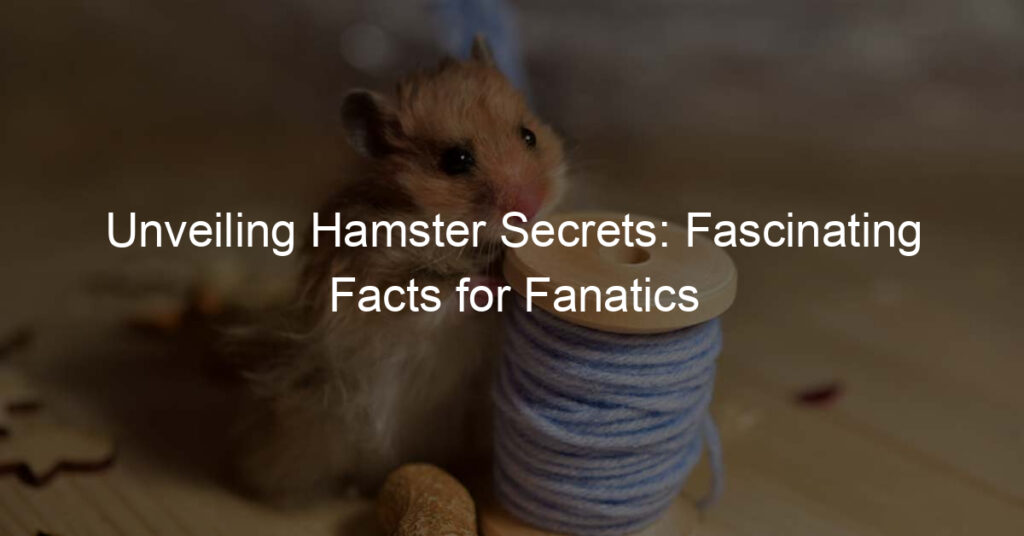Hamsters, like many other pets, require a carefully planned diet to ensure they receive the necessary nutrients for a healthy and happy life.
Although their primary source of nutrition should come from specially formulated hamster pellets and Timothy hay, introducing certain human foods in moderation can provide additional variety, vitamins, and minerals.
As responsible pet owners, it’s crucial to understand which human foods are safe for hamsters to consume and how to properly introduce them into their diet.
Before offering human food to your hamster, it’s important to understand their natural dietary needs and preferences. As omnivorous rodents, hamsters can enjoy a wide range of fruits, vegetables, grains, and even some protein sources.
Nonetheless, moderation is key to avoiding overfeeding or causing digestive issues. Be sure to observe your hamster’s reactions to any new treats and adjust their diet accordingly.
Key Takeaways
- Human foods can be included in a hamster’s diet when offered in moderation and selected carefully
- Focus on suitable fruits, vegetables, grains, and protein sources that support a balanced diet for your hamster
- Always consider the specific needs of your hamster species and prioritize their overall health and hygiene
Understanding Hamster Diet
When it comes to hamster health, diet plays an essential role. Hamsters are omnivores, meaning they eat a combination of plant-based and animal-based foods. A well-balanced hamster diet is crucial for maintaining their overall well-being and supporting their unique dietary needs and digestive system.
A typical hamster diet consists primarily of commercial hamster pellets, which provide the necessary nutrients for their growth and development. Additionally, Timothy hay is an important staple for them, as it offers essential fiber for their digestion.
Hamsters also enjoy the occasional treat of fruits, vegetables, and grains. Some safe fruits and vegetables for hamsters include apples (seeds removed), bananas, blueberries, carrots (cooked or raw), and more.
When feeding your hamster human food, it’s important to make sure the portions are small and appropriately sized for their tiny bodies, avoiding any choking hazards.
Besides fruits and vegetables, hamsters can also benefit from small amounts of protein-rich foods such as eggs or cooked lean meats. However, it’s important not to overfeed your hamster these items, as they may lead to obesity and other health issues.
While it may be tempting to share human food with your hamster, always ensure that you are knowledgeable about their dietary needs and which foods are safe for them to consume.
Some human foods can be harmful or even toxic to hamsters, so exercise caution and consult with veterinarian resources if you are unsure about any potential risks.
Understanding a hamster’s dietary needs and providing a balanced diet is fundamental to their health. Keep the focus on commercial pellets and Timothy hay while incorporating occasional treats of fruits, vegetables, and proteins to ensure a happy and healthy pet.
Suitable Fruits
Hamsters can enjoy a variety of fruits in their diet, as they are a delicious and healthy treat. However, it is crucial to offer these fruits in moderation to maintain a balanced diet and avoid health issues related to high sugar intake.
Apples are a popular choice for hamsters. You can safely feed red or green apples to your furry friend, but avoid giving them brown apples or apple seeds, as they can be harmful. Pears are another suitable option, as long as you remove the seeds and serve them in small portions.
Watermelon can be a refreshing and hydrating treat for hamsters, especially during the warmer months. Offer them small pieces without seeds to ensure they receive the benefits without overindulging. Similarly, pineapple is an okay fruit for hamsters, but it must be served in moderation and with the outer skin and core removed.
When it comes to berries, strawberries and blackberries are excellent choices. Hamsters can have a few pieces of these antioxidant-rich fruits, but remember to wash them thoroughly before serving. Grapes can be given to hamsters as well, but it’s essential to provide seedless varieties and break them into smaller pieces to avoid choking hazards.
In conclusion, hamsters can enjoy a variety of fruits in their diet, but it is essential to serve them in moderation and with proper preparation to ensure their safety and overall health.
Permissible Vegetables
Hamsters can enjoy a variety of vegetables as part of a balanced diet. These veggies provide necessary nutrients that contribute to their overall health. When introducing new vegetables to your hamster’s diet, it’s essential to do so gradually, allowing them to adjust to the new food.
Carrots make a great snack for hamsters, as they are rich in vitamins and minerals. They should be fed in moderation, as too many carrots can lead to health issues due to their sugar content. Cut small pieces to prevent choking hazards for your furry friend.
Lettuce is another option that is well-received by hamsters. However, it’s better to provide romaine or other leafy greens because iceberg lettuce has low nutritional value and high water content, which can cause diarrhea in hamsters. Spinach is an excellent alternative, giving your hamster essential vitamins and minerals while being low in calories.
Cucumber is a hydrating vegetable that provides a refreshing treat for hamsters. Offer small slices of cucumber to keep them hydrated, especially during hot weather or if your hamster is more active than usual.
Broccoli and cauliflower are cruciferous vegetables that are safe for hamsters to consume. They contain essential vitamins and minerals that contribute to a healthy diet. It’s best to offer them in small quantities, as overfeeding cruciferous vegetables can lead to gas and bloating.
When feeding vegetables to your hamster, always opt for fresh, pesticide-free produce. Wash the vegetables thoroughly before serving and remove any uneaten veggies after a few hours to avoid spoilage.
Remember that moderation is essential, and vegetables should be a supplement to your hamster’s primary diet of pellets or seed mix. Keep mealtime a fun and enriching experience for your hamster by occasionally rotating the veggies that you provide.
Nuts and Seeds
Hamsters can enjoy a variety of nuts and seeds as part of their diet. When fed in moderation, these nutritious treats can benefit your little pet’s health. It’s essential, however, to know which nuts and seeds are safe for hamsters to consume.
Almonds are a good option for hamsters, as they contain nutrients that promote heart health and help in reducing cholesterol levels. Rich in antioxidants, magnesium, and several other essential elements, almonds make a delightful snack for your furry friend.
Sunflower seeds are another popular choice for hamsters. They can be served as a treat or mixed in with a regular pellet-based meal. Sunflower seeds provide several benefits to your hamster’s overall health and well-being.
While the aforementioned nuts are safe options, it’s important to avoid feeding your hamster any apple seeds. These seeds may contain a small amount of cyanide, which can harm your pet. Make sure to remove any traces of apple seeds before offering fruit to your hamster.
Walnuts are also an excellent treat for hamsters, packed with nutrients and healthy fats. However, it’s crucial to feed them in small amounts to prevent excessive weight gain or other digestive issues.
In summary, nuts and seeds like almonds, sunflower seeds, and walnuts can be a healthy addition to your hamster’s diet. Just remember to serve them in moderation and always avoid potentially harmful options, such as apple seeds.
Protein Source Foods
Hamsters, like all animals, require protein to maintain their health and well-being. They are omnivorous creatures and can benefit from protein sources, both from animal and plant-based options. It’s essential to provide them with a balanced diet, and this includes supplementing their regular hamster food with some nutrient-rich proteins.
One of the best protein sources for your furry friend is cooked chicken. Chicken is an excellent lean meat that can be easily digested by hamsters. You can offer small pieces of plain, cooked chicken without any seasoning, as spices and salt are not suitable for your pet’s diet. Remember to remove all bones before giving chicken to your hamster, as they can cause choking hazards or injuries.
In addition to chicken, there are various other protein-rich options that your hamster may enjoy, such as mealworms and crickets. These insects offer the advantage of being a more natural source of protein, as they are part of a wild hamster’s diet. You can purchase these insects from most pet stores and offer them as a treat in moderation.
While providing protein to your hamster, it is essential to be mindful of portion sizes and frequency. Overfeeding proteins can lead to health issues like obesity. It’s generally recommended to offer proteins in small amounts a few times per week as part of a balanced diet combined with fruits, vegetables, and commercial hamster pellets.
To summarize, incorporating protein sources like cooked chicken, mealworms, and crickets into your hamster’s diet can promote their overall health and well-being. Don’t forget to always provide fresh water for your little pal in addition to a nutritious and balanced meal plan.
Foods To Avoid
It’s important to make sure your hamster stays happy and healthy, and knowing which foods to avoid giving them is key. Some human foods are actually dangerous for hamsters, so it’s best to stick to a diet of high-quality commercial pet food mixes.
Hamsters should not consume salty foods since salt can mess with their electrolyte balance and lead to health issues. Offering these small pets chocolate is a big no, as it contains theobromine, a substance that can be harmful even in small quantities.
In the realm of vegetables, onions and garlic are both toxic to hamsters. The compounds found in them can cause severe damage to their red blood cells. Furthermore, avoid feeding your hamster raw potatoes, as they contain solanine, which can cause gastrointestinal problems.
When it comes to fruits, citrus fruits like oranges and lemons are a bad choice for hamsters, as their high acidity and strong flavors can lead to digestive issues. Bitter almonds also pose a significant risk to your furry friend’s health, as they contain a cyanide compound that can be lethal.
Another food to keep away from your hamster is rhubarb. The oxalic acid found in rhubarb can be toxic to hamsters and may cause kidney damage if consumed.
To summarize, avoid feeding your hamster the following human foods:
- Salt and salted foods
- Chocolate
- Onions
- Garlic
- Raw potatoes
- Citrus fruits
- Bitter almonds
- Rhubarb
By steering clear of these foods, you’ll be giving your hamster the best chance to thrive and live a healthy, happy life. Remember to always provide them with a balanced diet and consult with your veterinarian if you have any concerns about their nutrition.
Other Dietary Considerations
When considering human foods for hamsters, it’s essential to look at their natural diet and nutritional needs. Hamsters are mainly grazers, with their diet in the wild consisting of seeds, grains, and occasional insects.
Grains and fiber should be a significant part of a hamster’s diet. Offer a variety of whole grain options, such as barley, oats, and wheat. However, it’s essential to avoid giving them too much sugar, as hamsters are prone to obesity and diabetes.
Vegetables are an excellent way to supplement a hamster’s diet, but it’s important to choose the right ones. Leafy greens like spinach and kale contain beneficial nutrients, while bell peppers and cucumbers provide vitamin C and hydration. Beans can be a valuable source of protein, but only feed hamsters cooked beans, as raw beans can be toxic.
Timothy hay is a vital component of a hamster’s diet, as it provides necessary fiber and helps with digestion. Always provide access to fresh timothy hay, as it aids their dental health by naturally grinding their teeth.
Commercial hamster pellets are a practical choice for ensuring that your pet gets all the essential nutrients they need. Good quality pellets offer balanced nutrition specifically designed for hamsters. It’s important to avoid sugary treats and maintain a healthy balance of food types.
To summarize, while hamsters can consume some human foods, it’s crucial to focus on their specific dietary needs. A balanced diet should include whole grains, fiber, vegetables, cooked beans, timothy hay, and commercial hamster pellets. Always pay attention to the quantity and quality of the foods offered, and remember, moderation is key for a healthy, happy hamster.
Ensuring Hamster Health and Hygiene
Taking care of a hamster involves providing them with a balanced diet, a clean living space, and ensuring their overall well-being. One aspect of their diet that may come into question is whether hamsters can consume human food.
While hamsters can enjoy some human foods as treats, moderation is essential to prevent health issues like obesity or digestive problems.
A hamster’s cage plays an essential role in maintaining their health and hygiene. It should be spacious, well-ventilated, and regularly cleaned to prevent foul odors and buildup of waste.
Providing fresh water in a clean water dispenser is also crucial for preventing dehydration and maintaining the hamster’s overall health.
Incorporating a small amount of fresh food in their diet can add variation and supply essential nutrients. Nevertheless, it’s important to ensure these fresh foods are safe for hamsters, and you should consult a veterinarian or do proper research before introducing any new treats.
Some safe options include small fruit or vegetable pieces and sugarless breakfast cereals and pasta. It is wise to limit these fresh foods to roughly 10% of the hamster’s overall diet to prevent obesity and maintain their nutrient balance.
Keeping an eye on your hamster’s weight is essential, as obesity can lead to various health issues and stress on their bodies. Limiting high-calorie treats and ensuring their diet consists mainly of commercial hamster pellets and Timothy hay can help prevent weight gain.
Along with monitoring their food intake, provide opportunities for physical activity, such as a hamster wheel or tunnels, to encourage exercise and prevent obesity.
An essential part of your hamster’s well-being is avoiding stress. Sudden changes in their environment, diet, or living conditions can cause stress, so it is important to introduce any adjustments gradually.
Providing them with a safe and secure environment, including hiding spots and nesting materials, also plays a crucial role in reducing stress and promoting their overall health and happiness.
Human Foods in Moderation
Hamsters are omnivorous rodents that mainly thrive on a daily diet of commercial hamster pellets, Timothy hay, and the occasional fruit, veggie, or grain treat. As a hamster owner, it’s essential to be aware that these little pets can eat some human foods, but always in moderation.
Fruits and vegetables can provide a delightful break from their staple diet. Some safe options for hamsters include apples (seeds removed), bananas, blueberries, and carrots (cooked or raw).
Besides these, hamsters can also enjoy oats, pumpkin seeds, sunflower seeds, and nuts from the human food realm. However, it’s important not to overdo it with the treats, as a well-balanced pelleted diet should be their primary food source.
When it comes to junk food, candy, and excessive amounts of salt and sugar, it’s best to avoid giving these to your hamster. They can be harmful to their small bodies, affecting their health and leading to potential complications.
It’s essential to keep in mind that hamsters are sensitive to salt, sugar, and other food additives present in human junk food.
In summary, while hamsters can enjoy some human foods as treats, it’s crucial to moderate their intake and prioritize their primary diet. Remember to avoid junk food, candy, and excessive salt or sugar to ensure your hamster remains healthy and happy.
By following these guidelines, you’ll be able to keep your little friend content and support their overall well-being.
Balanced Diet Recommendations
A balanced diet is essential for your hamster’s health and well-being. Just like humans, hamsters require a combination of protein, fats, carbohydrates, vitamins, and minerals to ensure they’re getting the right nutrients. To achieve this, consider including the following components in your hamster’s diet:
Seed Mixes and Pellets: A good base for your hamster’s diet consists of a mix of seeds and pellets specifically designed for hamsters. These mixes provide a variety of nutrients to help maintain optimal health. Aim for a balanced formula that includes around 12-24% protein and 3-6% fat.
Fresh Fruits and Vegetables: In addition to seed mixes, hamsters can benefit from small amounts of fresh fruits and veggies. Offer items like apples, blueberries, and carrots while avoiding potentially toxic foods like grapes and rhubarb. Make sure to wash the fruits and vegetables thoroughly before serving them to your pet.
Protein Sources: Hamsters require a good source of protein to support their overall growth and maintenance. You can include small portions of cooked lean meats, eggs, and insects like mealworms as occasional treats in their diet. Keep in mind that for pregnant or baby hamsters, the protein requirement increases to 18-40%.
Vitamins and Minerals: While the right seed mixes and fresh foods will typically provide adequate vitamins and minerals, it’s wise to monitor your hamster’s intake. Some pet owners use supplements in their hamster’s diet to ensure they meet their nutritional needs. Consult your veterinarian to determine if supplements are necessary for your pet.
Remember that each hamster is unique, and their dietary needs may vary based on factors like age, weight, and activity level. Regularly monitor your hamster’s eating habits and adjust their diet accordingly to maintain a healthy balance of nutrients.
Always consult with your veterinarian if you have concerns about your pet’s diet or overall health.
Special Considerations for Dwarf Hamsters
Dwarf hamsters have some unique dietary needs due to their high metabolism and risk of developing diabetes. When feeding your hamster human foods, keep these factors in mind to ensure their health and well-being.
Firstly, it’s essential to feed your dwarf hamster a balanced diet consisting of fruits, vegetables, seeds, and a limited amount of pellets and insects. High variety food mixes can be store-bought or made at home.
You might consider feeding your hamster once per day, with one spoon of food mix, along with a couple of occasional treats.
When it comes to fruits, dwarf hamsters can safely consume grapes and raisins, as well as peaches, without the stone. Always wash the fruits thoroughly to eliminate any pesticide residue before feeding them to your pet. Tomatoes are another option; just make sure to remove the seeds.
Nonetheless, it’s critical to be mindful that some dwarf hamsters might develop diabetes. So, keep the portions small and monitor for signs of sugar sensitivity.
Timing is an essential aspect of feeding dwarf hamsters. They have a strong metabolism and need food throughout the day. As they are mostly nocturnal animals, you may want to feed them in the evening when they are most active, although there is some debate on this matter.
Finally, always avoid feeding your hamster any human junk food like chips, chocolate, or anything unnatural. These foods not only provide no nutritional value but can be harmful to your pet.
Remember, when it comes to feeding your dwarf hamster, moderation is key. Keeping their dietary requirements in mind and making special considerations can go a long way in ensuring their health, happiness, and longevity.
Feeding Practices
When it comes to feeding your furry friend, it’s essential to remember that moderation is key. Although hamsters can enjoy certain people foods as occasional treats, their main diet should consist of specially formulated hamster food.
These foods often come in the form of hamster pellets, which are designed to provide complete nutrition for your pet.
It’s important to gradually introduce new foods to your hamster’s diet. Start with small amounts of a particular food and observe how your hamster reacts. If they seem to enjoy the treat without any negative side effects, you may continue to provide the food in moderation.
Hamster Pellets: Hamster food in the form of pellets is the ideal choice for your pet’s primary diet. These pellets provide a balanced and complete nutrition without the worry of leaving out any essential nutrients. In addition, pellets are an excellent option for hamsters to chew on, promoting dental health.
Feeding fruits and vegetables: Hamsters can enjoy a variety of fruits and vegetables, such as apples, carrots, and celery. However, these should be given sparingly due to their high sugar content.
Always remove any seeds or skins, as these can be harmful to your hamster. Remember to wash the fruits and vegetables thoroughly to remove any potential pesticides before offering them to your pet.
Feeding in moderation: While providing your hamster with people’s food can be a delightful treat, it’s crucial to avoid giving them too much. Giving your pet too much sugar or unhealthy treats can lead to various health issues, including obesity and diabetes.
Ensure that your hamster’s primary diet consists of pellets, with people’s food offered only as occasional treats.
To make it more enjoyable for your hamster, you can create a “treasure hunt” by hiding their food inside tubes, wrapped-up paper, or small boxes.
This not only provides mental stimulation but also replicates their natural foraging behaviors.
Frequently Asked Questions
Can hamsters consume fruits like apples?
Yes, hamsters can eat red or green apples in moderation. However, avoid giving them brown apples or apple seeds, as they can be harmful to their health.
What vegetables are safe for hamsters?
Hamsters can enjoy a variety of vegetables, such as carrots, cauliflowers, broccoli, and spinach. However, it is important to introduce new vegetables in small quantities and monitor how your hamster reacts before making it a regular part of their diet.
Is it okay to give peanut butter to hamsters?
While peanut butter can be given to hamsters in very small amounts, it is not recommended as a regular part of their diet. Peanut butter is high in fat and can stick to your hamster’s cheeks, causing difficulty in eating or breathing.
Are there any nuts that hamsters can eat?
Yes, hamsters can eat certain nuts like almonds, but only in moderation. Nuts contain high levels of fat and should be given as occasional treats rather than a staple food. Always ensure that the nuts you give are unsalted and unflavored.
What human food should be avoided for hamsters?
Avoid feeding your hamsters any food that contains high levels of sugar, salt, or spices. Some of the food items to avoid include chocolate, onion, garlic, raw beans, and high-sugar fruits like grapes. These foods can be harmful to your hamster’s health.
Any recommended vet-approved food for hamsters?
For a balanced diet, it is recommended to provide hamsters with a mix of specially formulated pellets or hamster mixtures available at pet stores, along with fresh fruits and vegetables.
For a treat, giving small portions of cooked chicken or low-fat cheese can be beneficial. Regardless, always consult your veterinarian for specific food recommendations tailored to your hamster’s needs.
